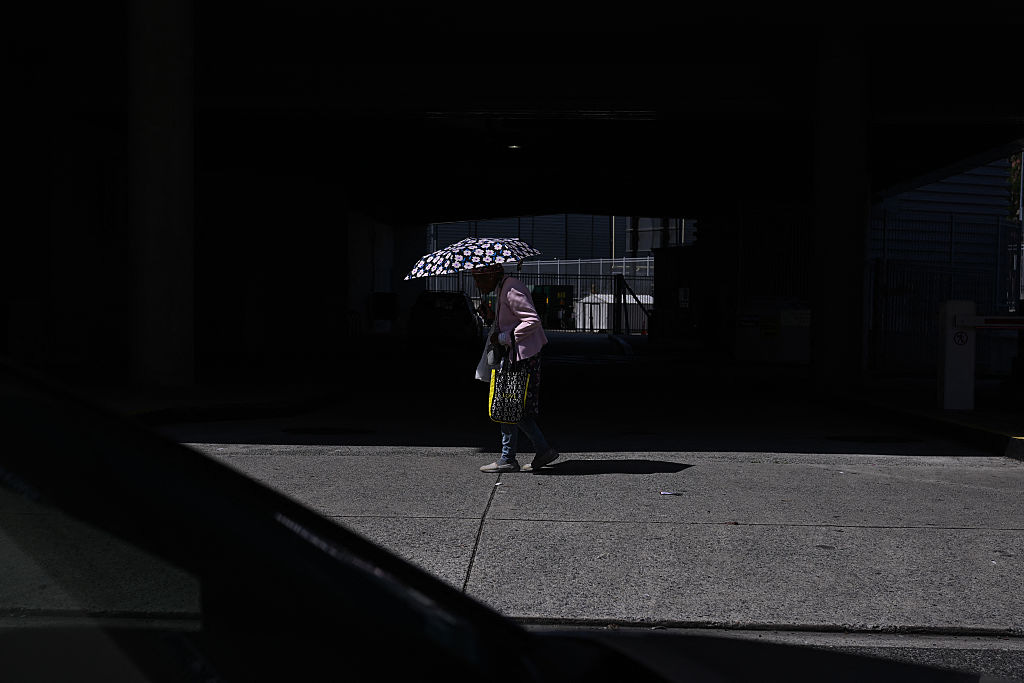It’s Tuesday, June 24. This is The Front Page, your daily window into the world of The Free Press—and our take on the world at large. Today: Trump’s giant gamble with Iran appears to pay off; the case against cremation; why the GOP candidate for New York City mayor has no shot; Zohran Mamdani’s volunteer army; and much more.
But first: The latest developments in the Iran showdown.
At 6 p.m. on Monday, Donald Trump declared a ceasefire. In a post on Truth Social that came as a surprise to just about everyone, the president said: “It has been fully agreed by and between Israel and Iran that there will be a Complete and Total CEASEFIRE.”
Trump congratulated Israel and Iran on “having the Stamina, Courage, and Intelligence to end, what should be called, ‘THE 12 DAY WAR.’ ”
Confusion followed. Iran’s foreign minister initially said there had been no such agreement, before appearing to acknowledge an agreement. Israel did not immediately confirm the deal. Whether or not a deal had in fact been reached when Trump hit send on his post—and whether or not such a deal holds—there were already signs on Monday that Iran was in no mood or position to escalate. Yes, Tehran fired missiles at a U.S. military base in Qatar, but only after telegraphing the attack to the Qataris, who informed Washington. It was, as one official tells Jay Solomon in his piece for The Free Press today, “basically a kabuki dance.”
And so, as of late Monday, it looked like Trump’s gamble had paid off. He appeared to have struck Iran’s nuclear program without triggering the kind of inexorable escalation that his doubters—including many in MAGA World—had predicted. That was certainly the message from the president’s party after the news. Republicans boasted of “peace through strength.”
Today, we have three stories covering the latest developments, the strategic big picture, and the political ramifications.
Jay Solomon reports on how the temperature was lowered on Monday—and what a ceasefire might mean for what remains of Iran’s nuclear program.
Next, the historian Victor Davis Hanson says that the way you know Trump’s strikes were a success is “the poverty of both foreign and domestic criticism.” Victor surveys the world after the strikes and explains why he thinks Trump will avoid becoming yet another U.S. president who comes unstuck in the Middle East.
And third, Free Press columnist Matthew Continetti looks at the domestic politics of the strike—and how the Democrats have gone AWOL on Iran. The party has had nothing to say, switching between silence and procedural complaints. “The Iran crisis doesn’t just reveal the Democrats’ irrelevance,” writes Matt. “It exposes a fundamental unseriousness that makes their other problems worse.”
—Oliver Wiseman
Was Trump’s strike on Iran’s nuclear facility a decisive blow—or the start of something bigger, even amid reports of a possible ceasefire deal? In this episode of Honestly, former Israeli ambassador to the U.S. Michael Oren, investigative reporter Jay Solomon, and Free Press Israel correspondent Matti Friedman unpack what we know—and what we don’t—about the Fordow strike, Iran’s next moves, and where we’re headed next.

-
More than half of Americans are under a heat advisory today as a widespread heatwave continues to break daily temperature records nationwide. Tens of thousands of people experienced blackouts across the country yesterday, including 50,000 in and around Cleveland and 14,000 in New York City.
-
Two top Federal Reserve officials appear keen to lower interest rates as early as July, including Michelle W. Bowman, the Fed’s vice chair for supervision. Fed Chair Jerome H. Powell, however, is not as eager to make cuts and told reporters last week that the central bank will “be where we are” for now.
-
The United Kingdom officially designated Palestine Action as a terror organization, citing the group’s “long history” of criminal violence. If approved by British Parliament, the ban would make support of the group a criminal offense punishable by up to 14 years in prison.
-
The Supreme Court said yesterday that it will hear the case of a Rastafarian prisoner whose dreadlocks were chopped off by correctional officers, allegedly in violation of his religious freedom. “When I was strapped down and shaved, it felt like I was raped,” Damon Landor said in a statement to The New York Times last year.
-
New York State plans to build a major nuclear power plant—the first American nuclear project of its scale in over 15 years—Governor Kathy Hochul told The Wall Street Journal yesterday. The new facility is part of a push to add at least 1 gigawatt of nuclear power generation to the state’s reactor fleet, Hochul said, which is enough to power approximately one million homes.
-
Oil prices plunged more than seven percent yesterday following Iran’s retaliatory strikes on a U.S. air base in Qatar. “Crude is pulling back as the market digests signs that energy infrastructure is not Iran’s first choice for retaliation,” Rebecca Babin, a senior energy trader at CIBC Private Wealth Group, told Bloomberg yesterday.
-
FICO scores will now include buy-now-pay-later loans, Axios reported yesterday. With more than 90 million Americans using such loans to amortize purchases from clothing to Coachella tickets, FICO said the new criterion will allow more opportunities for borrowers to build credit.
Click this link for the original source of this article.
Author: The Free Press
This content is courtesy of, and owned and copyrighted by, https://bariweiss.substack.com feed and its author. This content is made available by use of the public RSS feed offered by the host site and is used for educational purposes only. If you are the author or represent the host site and would like this content removed now and in the future, please contact USSANews.com using the email address in the Contact page found in the website menu.












